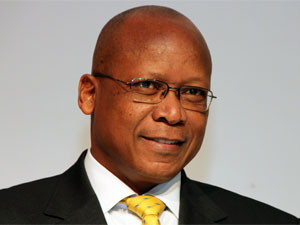
MTN may have lost out in the duel to acquire a telecommunications licence in Myanmar, but the operator is not about to bow out of the race, nor is it out of doors to knock on.
This is according to analysts, and follows the news yesterday that MTN lost its bid for a licence in the hugely under-serviced South East Asian country, to two giants of global emerging markets - Norway's Telenor and Qatar's Ooredoo.
The winning bidders are entering a country analysts peg as one of the world's last telecoms frontiers, with less than 9% of its 60 million-strong population currently connected.
The licence agreements require Telenor and Ooredoo to launch services within nine months after finalising the licences, a process expected to close by September. They will have to provide voice services across three-quarters of the country and data services across half of it - within five years.
More doors
IDC analyst Spiwe Chireka says, while Myanmar would have been a key area of growth for MTN - Africa's largest mobile operator - it is not the be all and end all for SA's yellow network.
While opportunities within emerging markets - like Asia and Africa - are not as abundant as they once were, says Chireka, they are "certainly not non-existent", especially for a capital-heavy company like MTN.
The listed company, which ended the 2012 year with a net cash balance of R5.5 billion, closed higher yesterday, despite the news, gaining 3.04%, or 527c, to end at R178.77. By comparison, the all share index gained 0.35%, while the telecommunications index lost slight ground.

MTN currently has operations in 21 countries across Africa and the Middle East. In terms of further opportunities, Chireka cites African examples like Angola, Zimbabwe and Ethiopia: "MTN is looking at Africa - the back door - and has already made its mark in Ethiopia [through a value-added licence] where the penetration rate is about 21%, making it one of the fastest growing markets.
"In Angola, where there are talks that the country may be issuing a third mobile licence, MTN makes no secret of the fact that it wants to go into the market. And then there are the rumours that just won't go away that MTN is making a move in Zimbabwe through its third largest operator, NetOne."
Chireka concludes while opportunities for licences, mergers and acquisitions are fewer, there is undoubtedly room for MTN to explore. "Are they done shopping? I don't think so. I think we are going to be hearing a lot more from MTN in both Asian and African markets."
Asian expansion
Africa Analysis analyst Dobek Pater says, in terms of continuing to explore its options in Myanmar itself, MTN may consider a number of possibilities.
"[MTN could] wait for the networks to develop a bit and buy one of them, or it could participate as a mobile virtual network operator at a later stage. Partnering with one of the licensees, as Orange did in Uganda, is another option - or the company could enter the market as MTN Enterprise at a later stage, if possible."

Pater says, however, emerging markets outside of Africa are growth markets that are attracting larger global operators looking for new expansion areas - and this increases MTN's competition.
"Developing markets are becoming gradually saturated with service providers and services, and they offer less of a greenfields opportunity than in the past. MTN would need to look for an acquisition or alternatively begin setting itself up for more fixed-line/Internet service provider type growth in the business sector as the business market evolves and has greater need for ICT services."
Ovum's Richard Hurst echoes the overall sentiment that greenfields opportunities - like Myanmar - are dwindling, but agrees there are other opportunities that will emerge in the republic "as this is considered the first round or stage of the market liberalisation".
Hurst says it is expected that soon other licences, such as long distance and Internet service licences, will be offered to prospective bidders.
He says MTN is not through eyeing or pursuing high growth-rate areas. "I think MTN will continue to look for similar opportunities in other countries where there is a high grow rate. However, the greenfield opportunities such as Myanmar are becoming fewer and the markets are becoming extremely competitive."
Hurst expects MTN to "pick its battles" carefully and focus on managing the risk in emerging markets.
Analysts have long said, with the changing face of telecoms in Africa and globally, everything points to consolidation in the market. For players like MTN, says Hurst, growth will be more acquisitive than organic.
MTN Group president and CEO Sifiso Dabengwa confirms MTN will "review other options in Myanmar as and when they become available". He says MTN believes in the potential of emerging markets, and will continue to explore and evaluate suitable opportunities for further growth in Africa - and elsewhere in the developing world.
Share